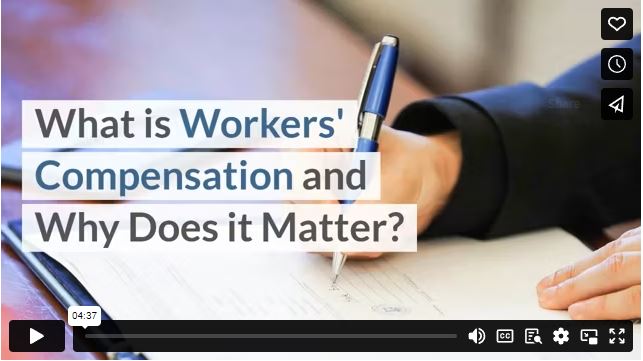Workers’ compensation is insurance for workers who are injured or become ill because of their work. Employers pay for this insurance for their workers and are not allowed to ask employees to contribute to the cost of workers’ compensation insurance.

(koehlertina1 / pixabay)
Unless you have been injured at work, you might not have thought about why workers’ compensation matters. You might have brushed over the fine print in your contract about workers’ compensation, or “workers’ comp,” as it is commonly known. But, if you are injured, workers’ compensation may be a significant, even critical, part of your healing and recovery.
Who runs the workers’ compensation program in Las Vegas?
Workers’ compensation is a state-mandated, state-run program. The federal government offers its own workers’ comp program for its workers, but the federal program only applies to people who are on the federal government’s payroll.
Each state has its own workers’ compensation insurance program. Slight variations exist between the states’ programs. Check with a workers’ compensation lawyer near you to determine how Nevada’s workers’ compensation program applies to your situation.
The Nevada Workers’ Compensation Board runs the workers’ compensation program in Las Vegas. The Workers’ Compensation Board is a state-run agency that processes claims and determines the injured party’s benefits.
Although the Nevada Workers’ Compensation Board oversees the state-wide program, an injured employee’s claim needs to come from the employer. Therefore, an injured worker will need to submit a claim with their employer rather than negotiate directly with the state board.
Does workers’ compensation provide cash payouts to injured workers?
Workers’ comp provides cash benefits and medical care, depending on the situation.
How do I file a workers’ compensation claim in Las Vegas?
In Nevada, a worker must submit an Incident Report to an employer within seven days of the injury. If the worker feels that they deserve benefits, they must also submit an Employee’s Claim for Compensation. If the employer decides to deny the claim, the worker may then contact a personal injury lawyer who can help the injured worker receive workers’ comp benefits.
Does workers’ compensation prevent me from hiring an attorney and suing my employer for workplace injuries?
Filing a workers’ compensation claim does not prevent you from suing your employer, but accepting benefits may. In other words, accepting workers’ comp benefits usually results in an employee losing the right to sue their employer for the same injuries.
If your employer denies your workers’ comp claim, you may consider filing a lawsuit. Or, if your workers’ comp claim is accepted, but the proffered benefits are insufficient, you may refuse to accept the benefits and proceed with a lawsuit.
Would workers’ compensation ever refuse to pay for an injury?
If your employer refuses your claim, workers’ compensation insurance will not become activated in your situation. If your employer disagrees with your claim and refuses to send your claim to the State Board, you won’t receive compensation for your injuries.
Like most states, the Nevada Workers’ Compensation Board has limitations around benefits that may be paid to employees who were injured while under the influence of drugs or alcohol.
Compensation may also be denied if the workplace injuries occurred in situations that were outside the bounds of work. If the injuries occurred at the workplace due to the employee breaking the law, compensation may be denied. Similarly, if there is evidence that injuries were self-inflicted or occurred while the employee was away from work, benefits may be withheld.
Workers’ compensation does not cover federal employees and most independent contractors. In addition, workers’ compensation insurance does not cover volunteers, casual workers, and employees in very small companies.
Why would I need to involve a lawyer in a workers’ compensation situation?
You might consider involving a lawyer in your workers’ compensation claim if your employer disputes your claim. If your employer refuses to accept your claim, you may wish to consult with a personal injury lawyer to pursue your rights.
You might also consider involving a lawyer in your workers’ compensation claim if the benefits offered by workers’ compensation do not cover the costs of your injury. Finally, you may consider involving a lawyer in your workers’ comp claim if you feel that your employer needs to be legally dissuaded from harming other employees the way that you have been harmed.
Are workers’ compensation claims outside the regular legal system?
No, workers’ compensation claims and disputes are not outside the regular legal system. This common – but mistaken – notion comes from the fact that a worker who accepts benefits from workers’ compensation usually forfeits their right to sue the employer for further benefits.
When workers’ compensation fails to meet the needs of an injured worker, the state courts provide a safety net and protection. Filing a workers’ compensation lawsuit, or even asking your employer to negotiate with an experienced lawyer, might be the only feasible option for receiving benefits that you deserve.
Video

